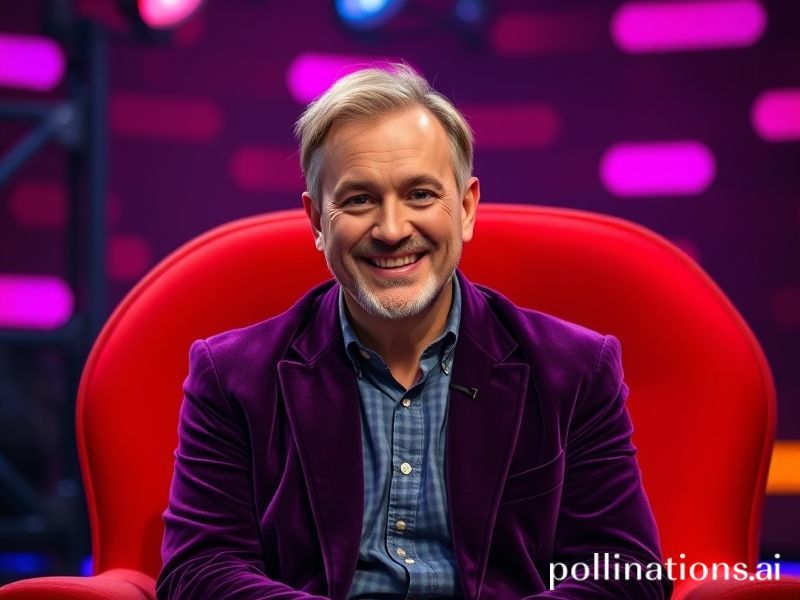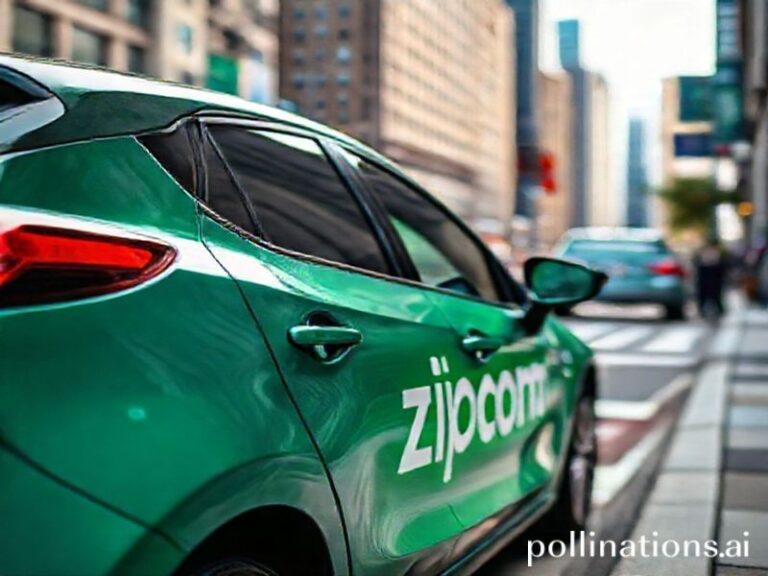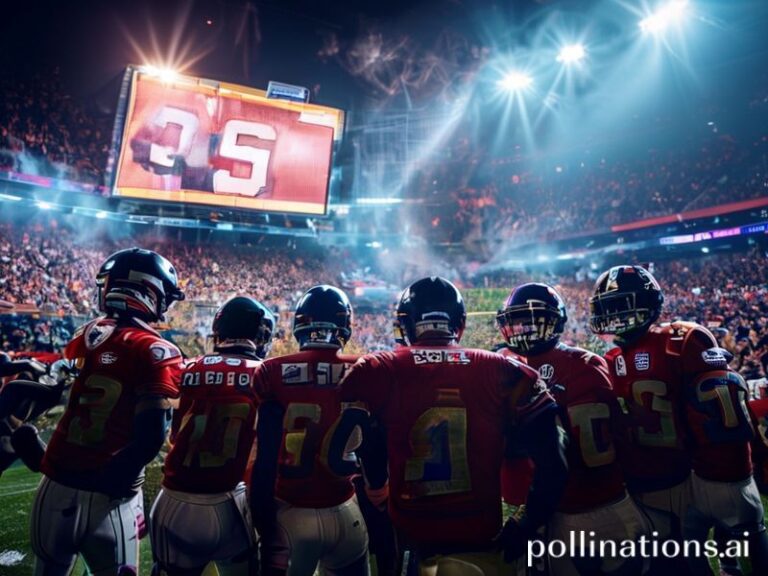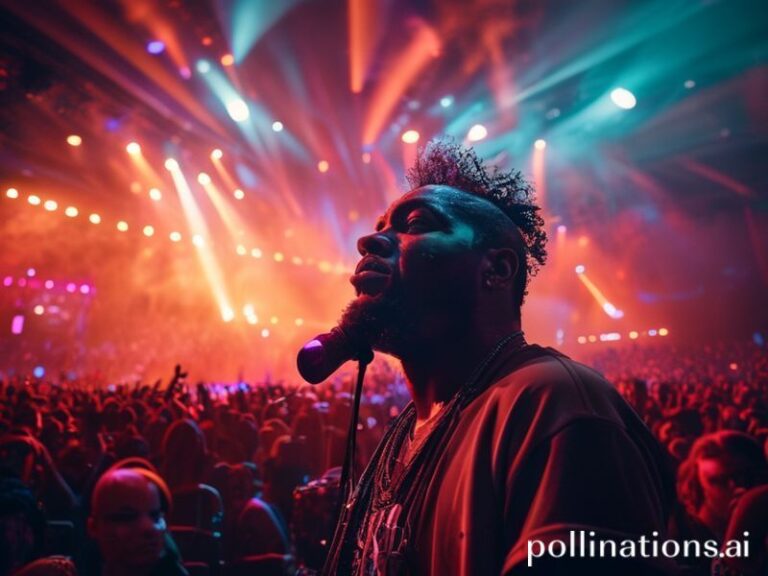Graham Norton: The Irish Talk Show Host Uniting the World Through Celebrity Humiliation and Cheap Wine
**The International Phenomenon of Graham Norton: How One Irishman Became the World’s Therapist, Bartender, and Confessional Booth**
In an era where international diplomacy collapses faster than a house of cards in a hurricane and global unity seems about as likely as a vegan barbecue at a Texas rodeo, one bespectacled Irishman has achieved what the United Nations can only dream of: getting people from warring nations to sit together, drink together, and laugh at their own absurdity.
Graham Norton—born Graham Walker in Dublin back when Ireland was still primarily known for potatoes, priests, and problematic drinking—has become an unlikely ambassador for the world’s collective nervous breakdown. His BBC chat show, syndicated across 180 countries (including places that still stone people for less scandalous behavior than what happens on his red sofa), serves as a peculiar form of international therapy. Where else can you watch a British duchess, a Korean pop star, and a Hollywood actor compete in a drinking game while discussing their most embarrassing sexual encounters?
The genius of Norton lies not in his ability to extract secrets from celebrities—that’s about as challenging as getting a politician to accept a bribe—but in his talent for making international audiences believe we’re all equally ridiculous. When a prim Bollywood actress reveals her addiction to reality TV dating shows, or when a serious method actor recounts getting drunk with the Queen, national boundaries dissolve faster than British prime ministers during Brexit negotiations.
His impact on global culture extends beyond mere entertainment. In countries where homosexuality remains criminalized, Norton’s unapologetic queerness beams into living rooms like a glitter-coated middle finger to authoritarianism. Russian piracy sites report his show as their most-downloaded Western program, suggesting that even under Putin’s iron grip, people still crave the sight of celebrities making fools of themselves. Perhaps there’s hope for humanity after all—though admittedly, it’s the kind of hope that comes with a hangover and several regrettable stories.
The economic implications are staggering. The “Norton Effect” has boosted London’s tourism industry by an estimated £200 million annually, as international visitors flock to the BBC studios hoping to catch a glimpse of famous people saying inappropriate things. Local pubs near the studio have reported a 300% increase in American tourists asking for “whatever Graham’s guests are drinking,” apparently unaware that the red wine is probably just Ribena and the champagne is likely budget prosecco with the labels switched.
What’s perhaps most remarkable is how Norton has weaponized schadenfreude into a diplomatic tool. When a German audience watches a British royal family member tell an embarrassing story, or when Chinese viewers see American celebrities mock their own president, it creates a shared moment of transcultural mockery. We’re not laughing with each other; we’re laughing at each other’s elites, and somehow this brings us together more effectively than any peace treaty.
As the world teeters on various brinks—climate catastrophe, nuclear proliferation, the inexplicable continued existence of TikTok challenges—Norton’s sofa remains a neutral zone where nuclear powers can unite in their shared appreciation of celebrity humiliation. It’s comfort viewing for the apocalypse, a reminder that no matter how bad things get, at least we’re not the ones telling that embarrassing story on international television.
In the end, perhaps this is the best we can hope for: not world peace, but world embarrassment. Not universal brotherhood, but universal drunkenness. Graham Norton hasn’t solved humanity’s problems, but he’s given us something arguably more valuable—a place where we can watch famous people reveal that they’re just as messed up as the rest of us, only with better teeth and worse judgment.







